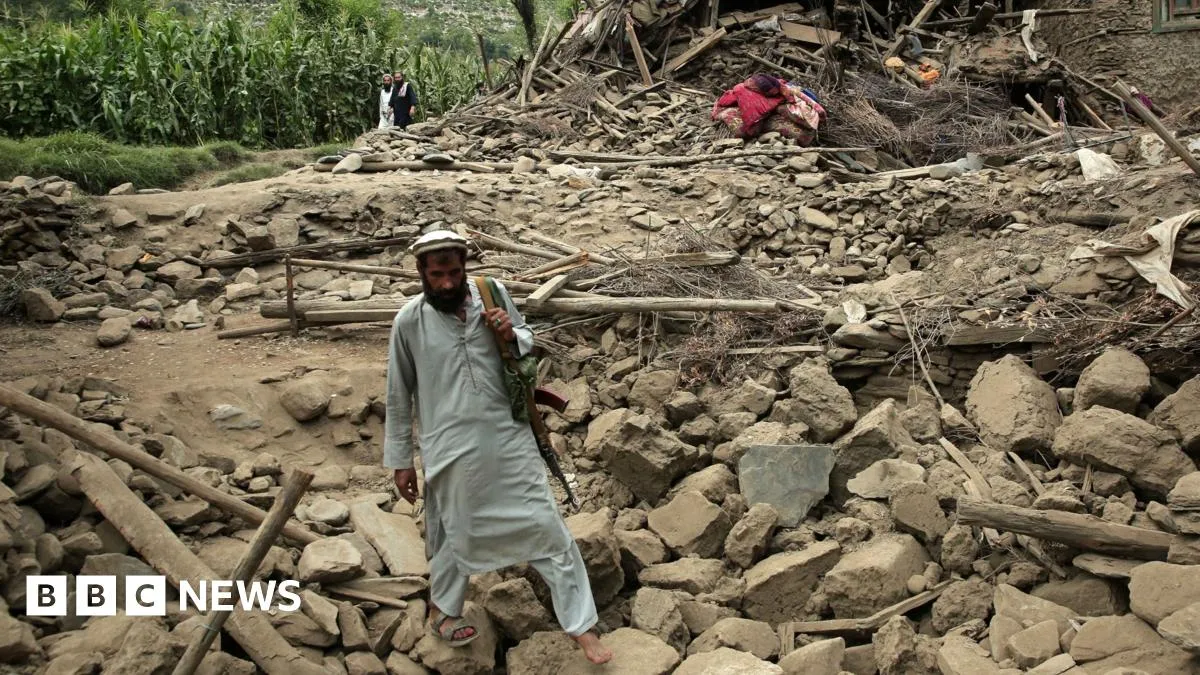
Recent reports from local media, including Tolo News, reveal that some families impacted by the devastating earthquake in Afghanistan were deported from Pakistan. This shocking development highlights the plight of those already suffering from the aftermath of the natural disaster. Mohammad Aslam, a resident of Ghaziabad village in Kunar, shared his harrowing experience, stating, "the whole house collapsed on us. We lost five people - my father, two of my uncle’s sons, and two of my cousins’ children."
The earthquake struck Kunar province late on a Sunday, a region that borders Pakistan. Aslam's circumstances leading to his deportation remain unclear, but the situation reflects a broader issue facing Afghan refugees in Pakistan. According to the United Nations, Pakistan has escalated its efforts to expel undocumented Afghans, particularly following a report from Human Rights Watch indicating that Afghan refugees were being coerced into returning to Afghanistan despite facing risks of persecution by the Taliban and dire economic conditions.
The conservative cultural landscape of Kunar province raises serious concerns regarding the treatment of women in the aftermath of the earthquake. Reports from the BBC Afghan Service indicate that women may delay seeking medical care due to cultural norms. Freelance reporters have noted that while some women were taken to Jalalabad’s main hospital, there were significantly more men receiving treatment.
Deepmala Mahla from the humanitarian organization CARE emphasized that "women and girls are bearing the brunt of the crisis," underscoring the urgent need for female humanitarian aid workers to provide relief effectively. In Afghanistan, strict Taliban regulations and entrenched patriarchal traditions severely restrict women’s independence, requiring them to have a male guardian for travel or accessing services.
In light of the disaster, a doctor at the provincial hospital in Asadabad reported that his facility had treated over 200 patients within a day, despite only having 150 beds available. He urgently called for more assistance, stating, "The Red Cross is offering assistance, but we need more help." While some countries have committed to providing support for disaster relief efforts, he lamented the lack of immediate aid received thus far.
Amy Martin, who heads the United Nations Office for the Coordination of Humanitarian Affairs (OCHA) in Afghanistan, highlighted the critical needs in earthquake-affected areas, including housing, shelter, and basic necessities like blankets. She indicated that humanitarian organizations are working to prepare hot meals and high-energy biscuits for those in need, although severe financial cuts to humanitarian assistance have significantly impacted their operations. More than 80 health clinics have closed in the quake-hit region, restricting access to healthcare for over 500,000 individuals.
In the wake of the earthquake, various countries, including China, India, the UK, and Switzerland, have pledged financial aid. The UK government announced £1 million in emergency funding to support healthcare and emergency supplies for the most affected regions. Foreign Secretary David Lammy stated that this funding would be distributed between the UN Population Fund (UNFPA) and the International Red Cross (IFRC) to ensure effective relief delivery.
India's Foreign Minister Subrahmanyam Jaishankar confirmed the delivery of 1,000 tents to Kabul and 15 tonnes of food to Kunar, with more aid expected to follow. Additionally, UN Secretary-General Antonio Guterres announced an initial release of $5 million from the UN's global emergency response fund to assist in the ongoing crisis.
As rescue efforts resume following one of Afghanistan's deadliest earthquakes, the death toll has tragically surpassed 800, with fears that it may rise even further due to the remoteness of the hardest-hit areas. The Kunar province, closest to the earthquake's epicenter, has experienced the most significant devastation. The UK has reiterated its commitment to channel aid through its partners to ensure that assistance reaches those in need without benefiting the Taliban administration.
As the situation evolves, humanitarian agencies and local authorities continue to strive for effective disaster response, underscoring the importance of international cooperation in providing aid to the Afghan people during this critical time.